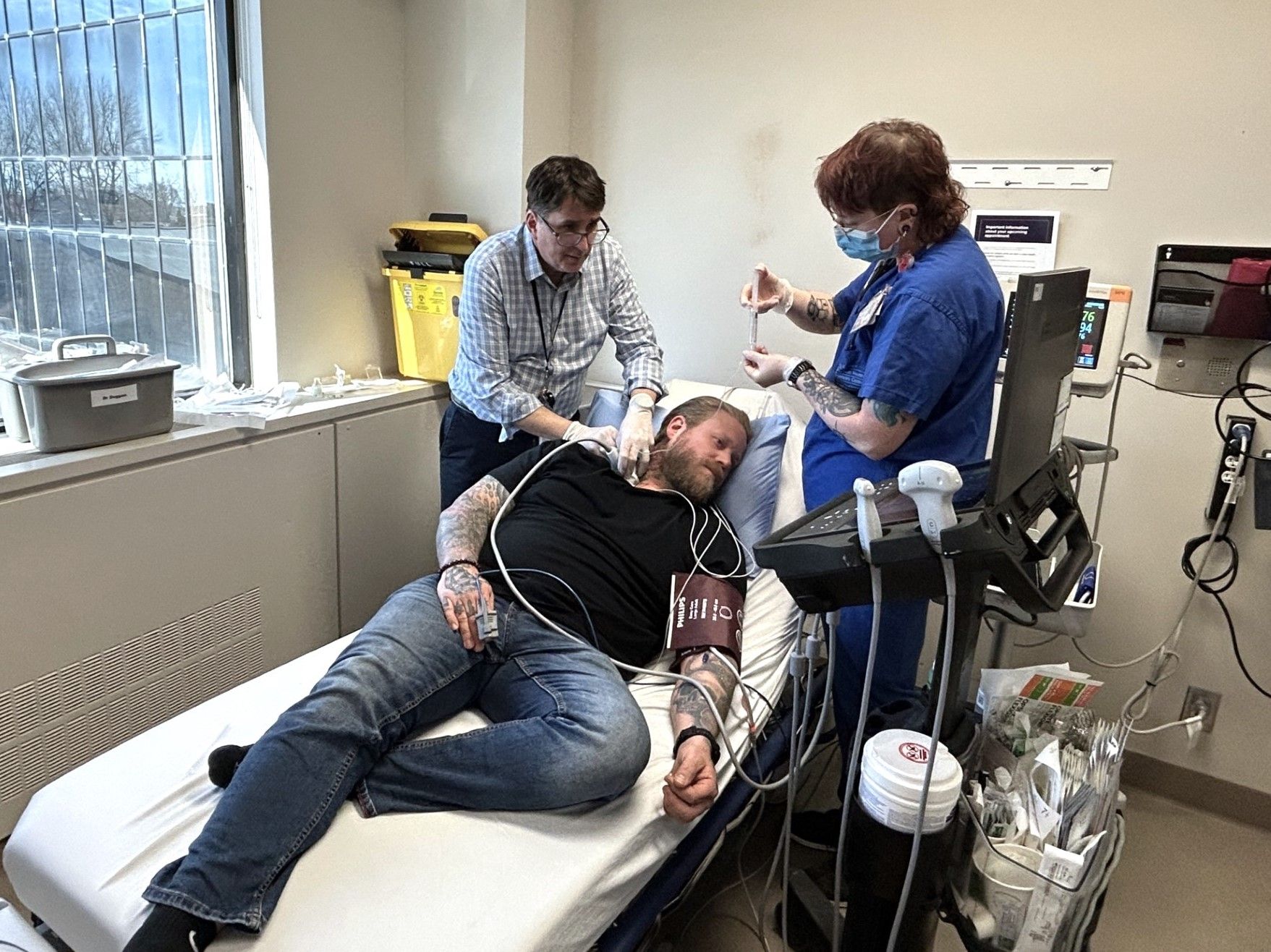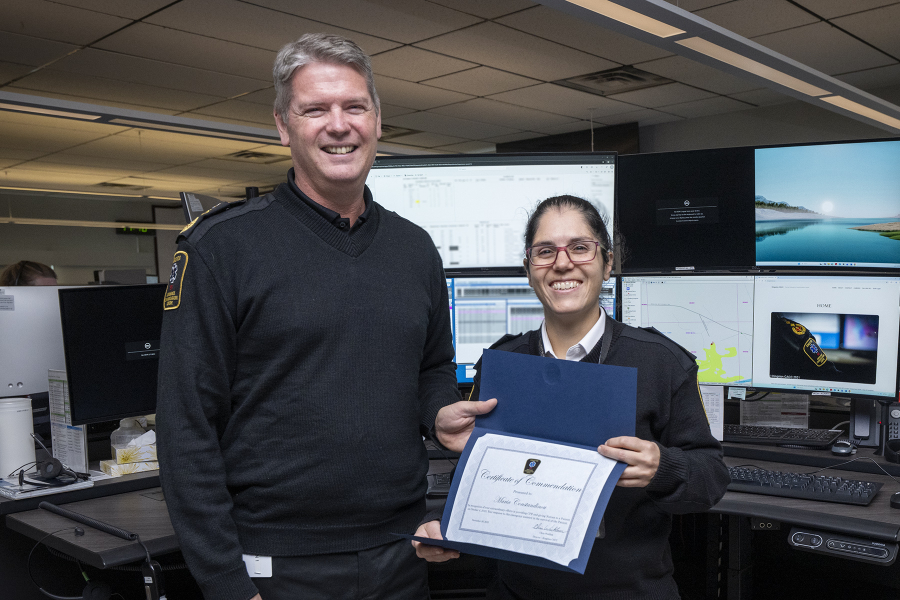Effective immediately masking is required for everyone when present on all inpatient units, in the Emergency Department (ED), the Urgent Care Centre (UCC), and the Children’s Outpatient Centre (COPC).

Chronic pain and post-traumatic stress disorder (PTSD) are two conditions which often exist side-by-side and intensify each other resulting in emotional distress, social withdrawal, mobility and memory problems and decreased overall wellness.
Experts at Kingston Health Sciences Centre (KHSC) chronic pain clinic are investigating whether pain interventions such as Stellate Ganglion Blocks (SGB) can bring mental and emotional relief to patients, in addition to improving their pain.
“When someone is living with chronic pain, their nervous system is often unregulated and responds to things it normally wouldn’t,” explains Dr. Scott Duggan, anesthesiologist and medical director at the chronic pain clinic.
“Most PTSD symptoms are also believed to arise from an altered nervous system. The SGB treatment targets those same nerves that regulate the body’s fight-or-flight response.”
How does it work?
Guided by ultrasound, care teams deliver anesthesia directly to the nerve system at the base of a patient’s neck. The entire procedure takes about 45 minutes and patients go home the same day.
Recent clinical trials have revealed mixed - yet encouraging results, and the procedure is becoming increasingly popular as a PTSD treatment in the United States and Europe. Clinics in Canada, including at KHSC, are seeing surging numbers of requests from patients seeking relief.
“It is important that we continuously explore and evaluate new treatment options in pain medicine and mental health conditions,” explains Dr. Duggan. “I’ll admit I was skeptical at first, but then we met our first patient and it was exceptionally helpful for him and his family.”
An ideal treatment for military and first responders
Southeastern Ontario is home to 12,000 military personnel and 5,000 veterans – the highest share in Canada – and it’s estimated that up to 20% are living with PTSD in addition to chronic pain.
Joshua Mason of Perth, Ontario is one of them.
Joining the Canadian Navy offered Joshua a world of opportunities, and he quickly found his niche as a Royal Canadian Clearance Diver trained in underwater welding and controlled explosions – arguably, one of the most dangerous jobs in the world.

“The job took a toll on my body, there’s no doubt about that,” says Joshua. “But there is also the moral injury – the aftermath of being exposed to all of these events that left me struggling every day.”
In the years following his service, Joshua found himself in a dark place. He and his wife Stephanie were frantically searching for solutions, including considering a hefty bank loan to seek treatment abroad, before connecting to the chronic pain clinic at KHSC to participate in this new initiative.
“It felt like we had been screaming for help, for years” explains Stephanie. “I cried with relief when we learned someone could help, and they were only 45 minutes away.”
Joshua started seeing Dr. Duggan and the pain clinic team in 2023 and has experienced an undeniable improvement in his quality of life ever since.
“Not only does it treat the pain, but it also takes me out of that reactive mentality”, explains Joshua. “I have the time to process that I’m not in immediate danger, and I can find reasonable solutions in stressful situations.”
The treatment has minimal side effects – a slight droopy eye may appear immediately after treatment, but the physical and mental relief can last for up to 3 months.
“It’s a small price to pay,” laughs Joshua. “A droopy eye for a few hours is better than an angry face all the time.”
You can make a difference
Community donations can support Dr. Duggan and his team in piloting this new treatment pathway in military, veterans, first responders and correctional officers who are struggling with PTSD and chronic pain.



